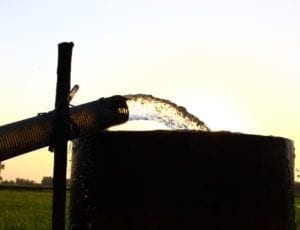The Acting Director-General of the Department of Water and Sanitation, Mbulelo Tshangana, convened a two-day drought intervention meeting with managers and executives from the Department, Water Entities, and the Ministry of Human Settlements, Water and Sanitation.
The main purpose of the meeting was about sourcing funds for mitigating drought effects at the identified hot spot areas countrywide. The meeting was held in Kempton Park last week, in response to a directive pronounced by Minister Lindiwe Sisulu during her visit to the drought stricken Eastern Cape earlier this week. Minister Sisulu instructed Acting Director-General to immediately find budget that would alleviate distress in areas faced with acute challenges. Despite rainfalls, some parts of the country such as Butterworth in the Eastern Cape and some areas in Northern Cape are still experiencing water challenges which have adversely impacted on the supply of water to communities. However, short-term interventions in hot spot areas have been implemented in the form of drilling of boreholes and providing water by means of water tanks.During this drought intervention meeting, the Department’s finances for this financial year were reviewed with the view to re-prioritised funds towards drought interventions in affected areas across the country.
The funding will be in line with the accelerated Drought Intervention Strategy currently being developed by the Department, together with relating implementation plans. Tshangana said the re-allocation of funds within DWS illustrates a commitment of government to bring solutions to the persisting drought in the country. The envisaged funds for drought relief will be presented to the Minister of Human Settlements, Water and Sanitation. “This exercise is to find money from Departmental Grants that will be utilised for drought intervention at the affected areas. Drought challenges in the country affect us as the Department and the water sector as a whole. It is therefore important that we take a collective streamlined approach of solving the problem of drought,” Tshangana.






